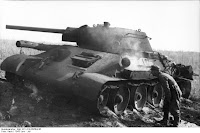
“Кто бы он там ни был, а писать повести надо вот этак: просто, коротко и ясно.”“Whoever he is, stories should be written that way: simply, concisely, and clearly.”
-A.S. Pushkin on the identity of the writer known as Ivan Petrovich Belkin
The Writer: Aleksandr Pushkin
Work and Date: Повести Белкина (The Belkin Tales) (published 1831). The tales are: “Выстрел” (“The Shot”), “Метель” (“The Blizzard”) “Гробовщик” (”The Coffin Maker”/“The Undertaker”), “Станционный смотритель” (“The Stationmaster”/”The Postmaster”) “Барышня-крестьянка” (“The Gentry Girl Peasant”/“The Squire’s Daughter”).
Why it’s important: Pushkin’s first completed, published prose. Interesting takes on narration and genre that continue to resonate in Russian fiction.
Online criticism, analysis, and background: Pushkin by John Bayley. Introduction to Tales of the late Ivan Petrovich Belkin, translated by Alan Myers. The Pushkin Handbook. And to see what Russian children are taught: a (Russian-language) lesson plan for “The Stationmaster.”
IMHO:
Part of the fun of Pushkin’s Belkin Tales is that they function like a mirror, taking on varied meanings depending on the reader’s mood, experience, and preferences. They are autobiographical. They are parodies. They are miniatures depicting the time. And so on. When I first read some of the stories – “The Stationmaster” and “The Shot” were among the first fiction I ever read in Russian – I felt simple gratitude to Pushkin for writing stories that even a third-year Russian student could understand.
Though I’ve always enjoyed the stories, reading them now, without a dictionary and with more experience recognizing genres and stock phrases, I take in The Belkin Tales much differently. I feel the autobiography, I feel the parody, and I feel the times. More than anything, though, I feel Pushkin’s skill as a prose writer.
I know that sounds like a weak, meaningless statement, but Pushkin’s achievement of “simply, concisely, and clearly” is, I think, what keeps the stories feeling so fresh and contemporary more than 150 years after they were written. Tolstoy said every writer should study them, and I couldn’t disagree: Pushkin cut out unnecessary words and description, leaving, to paraphrase Elmore Leonard, only the parts people want to read.
What makes the freshness so paradoxically unique, though, is that The Belkin Tales incorporate so many phrases, plot twists, and characters from genres popular in Pushkin’s time. “The Shot” features romanticism and a Byronic character, “The Blizzard” includes a ridiculously incredible coincidence, “The Stationmaster” is a sentimental, teary family drama, “The Coffin Maker” is a grotesque with ghosts, and “The Gentry Girl Peasant” depicts a young noblewoman who dresses as a peasant. The Belkin Tales have an almost embarrassing effect on me: each time I read them I get so caught up in enjoying the narration and subsequent atmosphere that I forget the endings, most of which are predictably genre-appropriate.
Why do I so willingly suspend my disbelief? Oddly, I think the answer lies in Pushkin’s overt exposure of storytelling techniques and their effects, which always has a way of affecting this reader’s expectations. Pushkin frames each story in multiple ways: he introduces the series of stories, which were allegedly told to and gathered by one Ivan Petrovich Belkin (rest his soul), resulting in a nested set of narrators and commentators. Even more interesting, I think, the narrators often inject themselves into their stories.
The teller of “The Coffin Maker,” for example, refuses to describe clothing, deciding to deviate “в сем случае от обычая, принятого нынешними романистами” (“in this case from the accepted habit of today’s novelists”). In “The Gentry Girl Peasant,” the narrator acknowledges the story’s readers and notes that gentry women learned about life from books. The story’s slightly goth hero, who wears a black ring “с изображением мёртвой головы” (I love this literally: “with an image of a dead head”), even teaches his beloved peasant girl (who is actually a gentry girl) to read, thinking she is illiterate. They read Nikolai Karamzin’s “Наталья, боярская дочь” (“Natalya, the Boyar’s Daughter”), a story that shares themes with “The Gentry Girl Peasant.”
I could go on and on about the intricacies of these stories, so I'll stop with this. I’m not sure I have a favorite Belkin tale, but it’s easy to name favorite aspects of two individual stories: I love the many layers of life imitating fiction in “The Gentry Girl Peasant,” and I also enjoy the melodrama, tautness, and prodigal child element of “The Stationmaster.” More than anything, though, I can’t believe how strongly this brief collection grabs me on every reread.
Summary:
The Belkin Tales are a wonderful example of pleasant, easy reading that has deeper meaning. Read these stories for whatever reason you like: pure plot enjoyment, a window into life and morals in another time, or to analyze genre and Pushkin’s narrative devices. No matter how or why you read them, the stories are a perfect prose introduction to Pushkin, his use of language, and his willingness to experiment.







